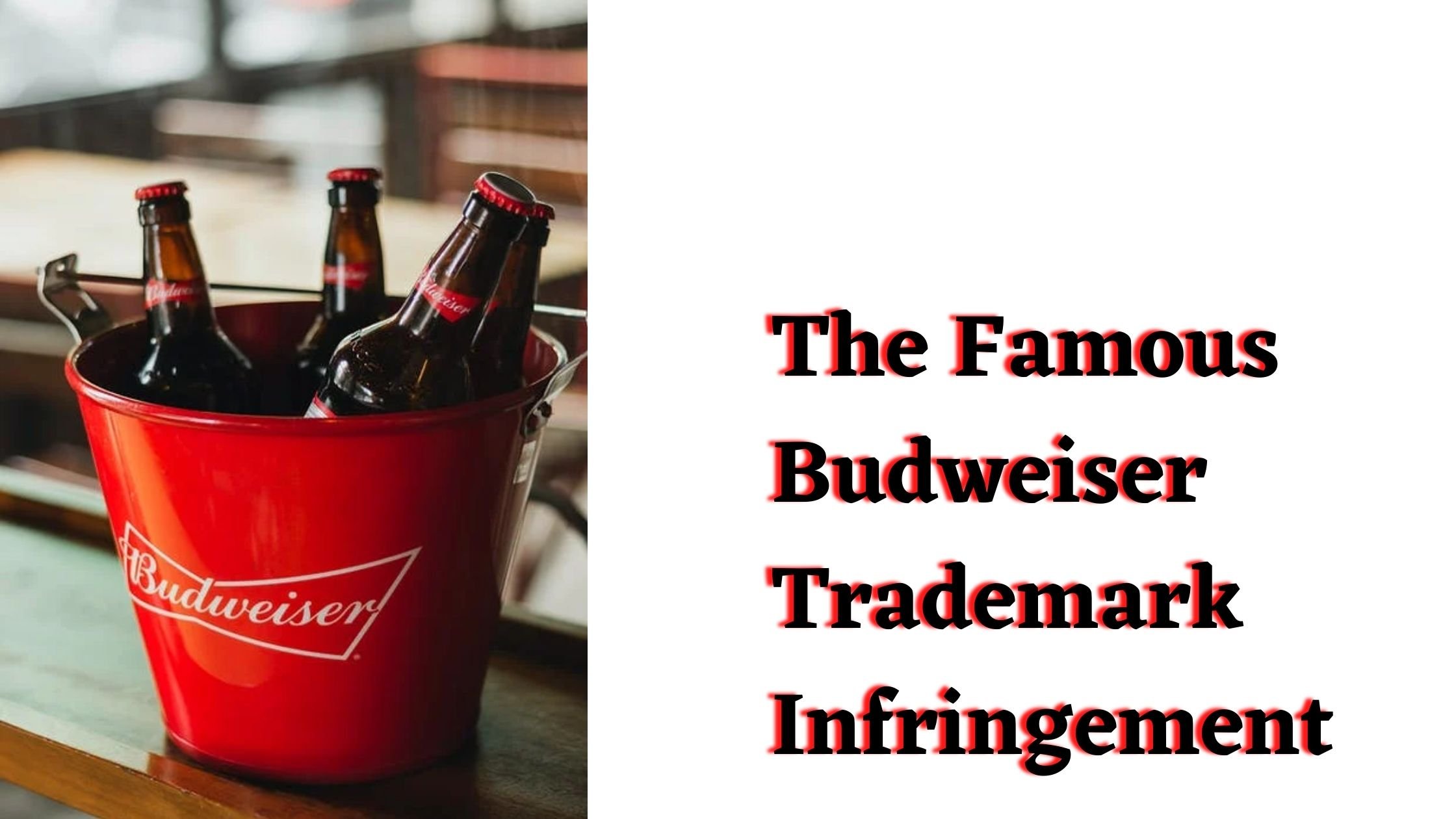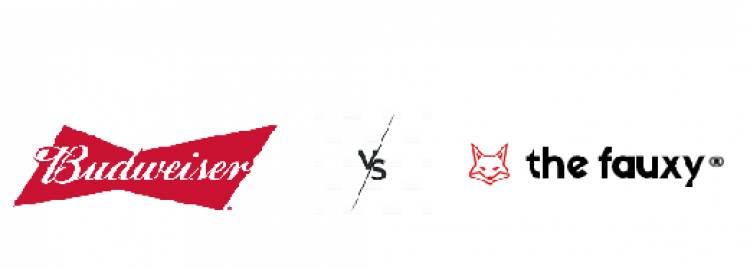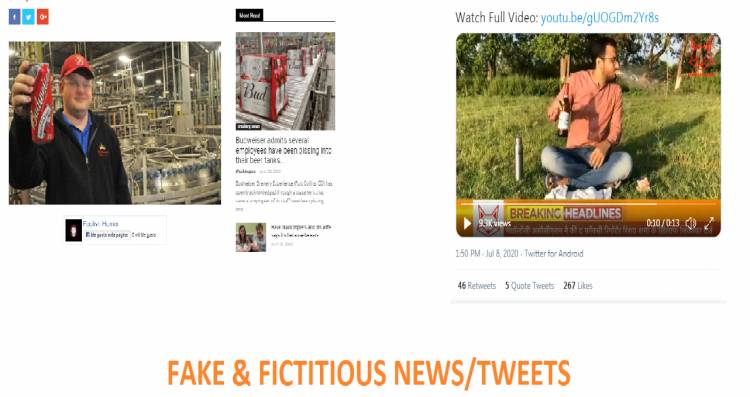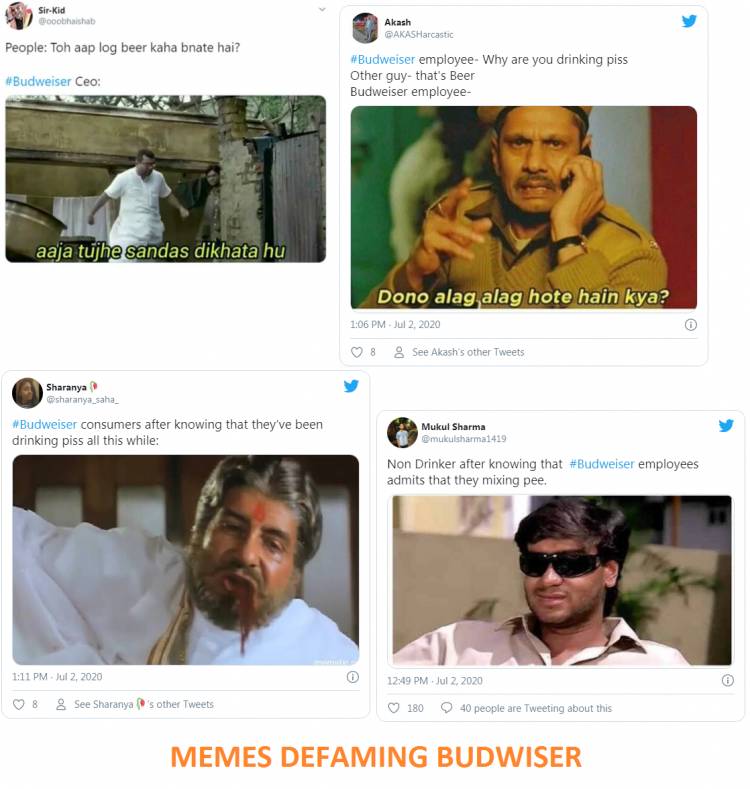Sarcasm versus Trademark: The Famous Case of Budweiser Trademark Infringement
In law, the Reputation of an individual, like any other tangible or intangible property, is considered to be the property of that individual. In business, reputation is probably the most important property of all. Thus in the common law of tort, defamation is considered similar to the ‘trespassing into another’s property’ and gives rise to a cause of action against the person who defames. In trademark law, reputation is an inseparable and integral part associated with the registered mark. Therefore, any harm caused to the reputation of the proprietor of the trademark gives rise to a cause of action of trademark infringement. The instant case, Anhueser Busch LLC vs. Rishav Sharma and Ors., (Budweiser case) involves this particular issue concerning trademark infringement in which the Delhi High Court has granted an Ad Interim injunction against the defendants.

In law, the Reputation of an individual, like any other tangible or intangible property, is considered to be the property of that individual. In business, reputation is probably the most important property of all. Thus in the common law of tort, defamation is considered similar to the ‘trespassing into another’s property’ and gives rise to a cause of action against the person who defames. In trademark law, reputation is an inseparable and integral part associated with the registered mark. Therefore, any harm caused to the reputation of the proprietor of the trademark gives rise to a cause of action of trademark infringement. The instant case, Anhueser Busch LLC vs. Rishav Sharma and Ors., (Budweiser case) involves this particular issue concerning trademark infringement in which the Delhi High Court has granted an Ad Interim injunction against the defendants.

Facts

One of the satirical website, ‘the fauxy’, publishes news reports and articles on various news in a sarcastic manner. The defendants, who are the reporters of this website, published a video on various social media platform namely YouTube, Twitter, and Instagram claiming to be fact-checking a piece of news, whether the plaintiff’s products, ‘Budweiser’ Beer, contains urine, as claimed by the plaintiff’s employee, was true or not.
The news itself was first published in another website ‘Foolish Humor’ which is another humorous website publishing hilarious news that is fictitious and not true. Now the impugned video published by the defendants presented a scene where one of the defendants tasted a sample of urine and a sample of the plaintiff’s Budweiser Beer and goes on to declare that the news has to be false because Budweiser Beer tastes worse than urine.
Arguments
The plaintiff contended that the key driver for its popularity in business globally is because of the plaintiff's reputation associated with 'Budweiser'. Further, the plaintiff presented that the defamatory video went viral and because of that several other defamatory posts including memes, videos were posted across the social media platforms. They even became no.1 trending on Twitter in India under the hashtag “#Budweiser”. The plaintiff further pointed out the fact that the YouTube page of the defendants did not mention any disclaimer which led to a legitimate news report published in India giving an impression in the readers’ mind that this fake news is a fact.

The defendants, on the other hand, argued that being a satirical content publishing platform, the articles or videos are published on the website or in any other social media platform in a sarcastic manner. Further, the defendants, YouTube and Twitter, are just an intermediary and the impugned video is not uploaded by them. Furthermore, the defendants, YouTube, and Twitter argued that this is not a case of defamation or disparagement as the plaintiff claims.
Order
The Delhi High Court, without discussing the merit of the case, opined the following—
-
The plaintiff has made a prima-facie case based on the facts available.
-
The court also opined that the acts of the defendants constitute an infringement of the plaintiff’s registered trademark.
-
The court further said that the defendants are liable for commercial disparagement of the plaintiff’s product.
Therefore, the court-ordered injunction against the defendants and restrained the defendants from further infringing the plaintiff’s trademark till the matter is decided by the court.
Analysis
Infringement of a registered trademark can happen in many ways. Commercial disparagement is one such ground based on which the plaintiff can bring an action of infringement against the infringer. “Commercial Disparagement is the publication of false and detrimental statements about a business or an individual and discourages or prevents the consumer from buying (or availing) the products (or services) from that business or individual causing an economic loss.” In a commercial setup, it is a common practice that one competitor in the market compares its products with the other competitors in the market to establish the superiority of its products. But there are some norms and rules to be followed when such a comparison is being made. In India, Section 29(8) of the Trademarks Act, 1999 clearly lays down in what circumstances such comparisons will constitute an infringement of a registered trademark. Disparagement is one such circumstance. Further, the courts have also imparted their knowledge in determining infringement by commercial disparagement. In the case of Dabur India Ltd. vs Wipro Ltd. (Dabur case), the court held that—
-
It is one thing to claim that defendant’s product is superior to the plaintiff’s product and it is another thing to say the plaintiff’s product is inferior to the defendant’s product
-
In comparison, the advertised product will always be shown superior to other products. The law allows an advertiser to claim such superiority. In that sense, it is necessarily implied that the other products are inferior to the advertised product. Therefore, the inferiority or superiority of the product depends on the viewpoint of the consumer.
-
An action for disparagement of a product can be complained of when such disparagement is in the form of defamation or amounts to defamation.
Thus, when we consider the Budweiser case in light of the judgment given in the Dabur case, it is clear that, comparing Budweiser beer with the sample of urine and then stating that Budweiser beer is worse than urine, amounts to defamation.
Conclusion
One of the defenses taken in this case is that the impugned video is a satire and such cannot constitute defamation or disparagement. It is important to note that in a satire, a particular point or a subject is exaggerated so much beyond its normal limits that it becomes hilarious and a normal human being with average intelligence cannot possibly accept such an assertion. Contrary to this, defamation might create a wrong impression in the mind in such a way that a normal human being may honestly believe in such assertions. This is because defamation lies within the normal limits of a person’s general conscience. Thus an individual who had never experienced the taste of the plaintiff’s beer may honestly believe in such assertions made in the impugned video that the plaintiff’s beer tastes worse than the sample of urine. The threshold that determines whether an assertion is a sarcasm is subjected to consumers’ general conscience. If such an assertion is capable enough to change the opinion of the consumers about the plaintiff, it fails to overcome that threshold and will be considered defamatory. It is therefore to observe how the court determines this instant case in light of these two conflicting arguments.
To know more about, Budweiser Infringement case, see the video below -
BY-
DEBKRIPA BURMAN












